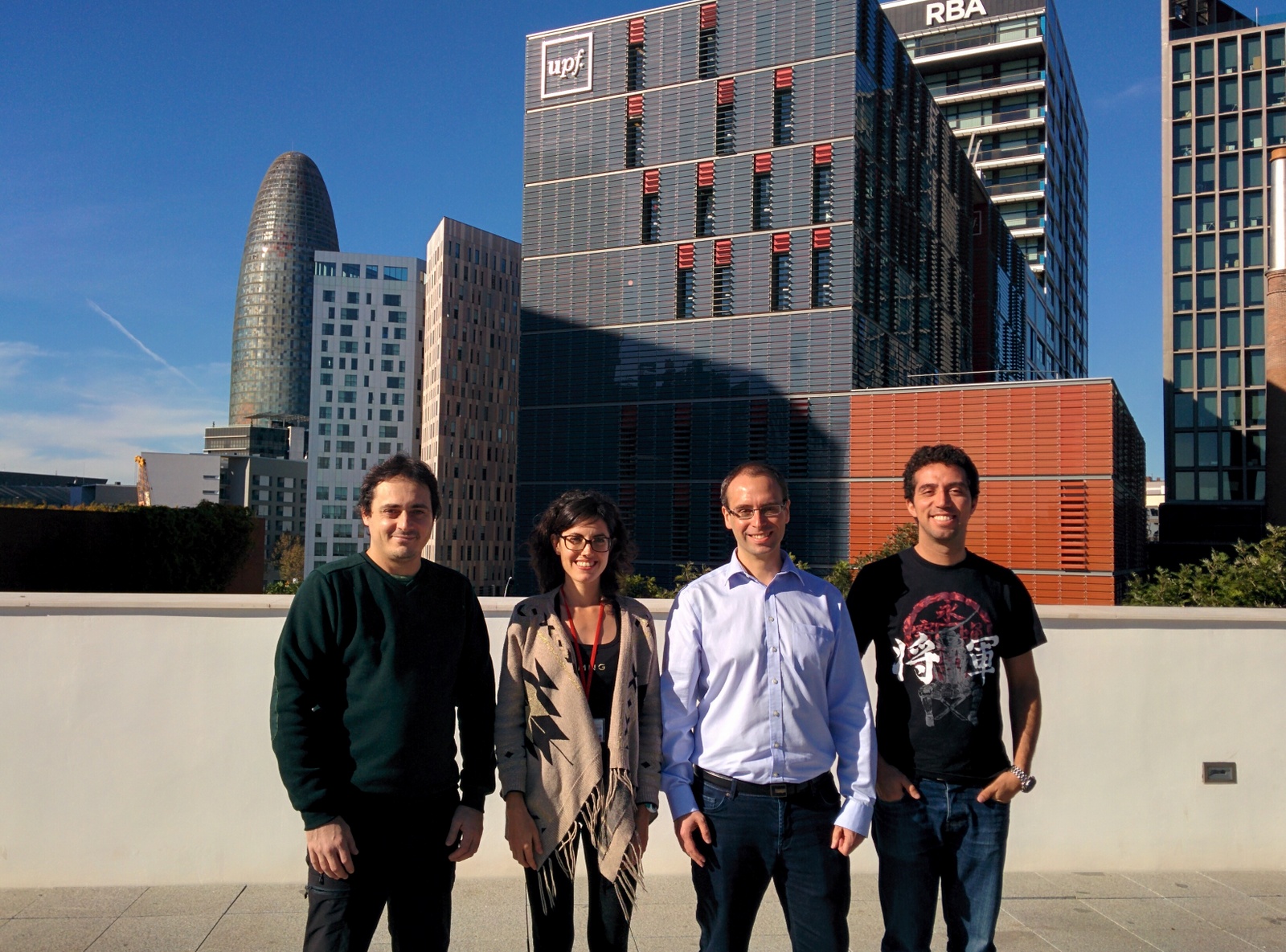A medical device for the prevention and diagnosis of colorectal cancer receives a CaixaImpulse programme grant
A medical device for the prevention and diagnosis of colorectal cancer receives a CaixaImpulse programme grant
The project is led by Marta Guardiola, a researcher with the Physense Research Group, part of the Barcelona Centre for New Medical Technologies (BCN-MedTech) unit, an interdisciplinary and translational platform for research in biomedical engineering of the Department of Information and Communication Technologies.
Pompeu Fabra University (UPF) has received one of the twenty grants awarded by the CaixaImpulse programme to proceed with a new medical device for the prevention and diagnosis of colorectal cancer. The project “Real-Time Microwave Imaging Device for Endoscopic Explorations and Interventions” is led by Marta Guardiola, a researcher of the Physense Research Group, which belongs to the recently created Barcelona Centre for New Medical Technologies (BCN-MedTech) Unit of the Department of Information and Communication Technologies (DTIC) at UPF, an interdisciplinary and translational platform for research in biomedical engineering of the Department of Information and Communication Technologies.
 Colorectal cancer, the second cause of cancer death
Colorectal cancer, the second cause of cancer death
Colorectal cancer is a serious health problem in countries with a westernized lifestyle and is the second cause of cancer death. Worldwide, there are 1.3 million new cases annually and it is one of the biggest causes of morbidity and mortality. In Spain, this type of cancer affects one in 20 men and one in 30 women between the ages of 50 and 74. Although a colonoscopy is the only method of detection capable of detecting colorectal cancer, the rate of undetected polyps using this diagnostic technique is 22%, and the risk of suffering this cancer, despite a negative result from a colonoscopy, is 60-70%. Here, the skill of the professional performing the test and the difficulty of capturing images of an intestine that is in constant motion come into play.
As Marta Guardiola states, “using the electrical properties of microwaves and a head of sensors that fits the distal end of a standard colonoscope, we have discovered a new technology based on real-time imaging”. The inventors of this new device merged images from the endoscope with the one created with the microwave head. It is therefore easier to distinguish healthy from diseased tissue, with a contrast that was not previously available at a glance. In addition, the new method has the added value that it “does not change current clinical practice, it is safe and inexpensive”, says the project’s principal investigator.
In 2015, the Catalan agency AGAUR pertaining to the Catalan Government awarded a seed grant to this very project, which involves Glòria Fernández, coordinator of Digestive Endoscopy Unit at Hospital Clínic de Barcelona, with the participation of the SiMBioSys Research Group, directed by Miguel Ángel González Ballester, ICREA research professor at UPF’s DTIC, as well as members of UPC’s ANTENNALAB.
The copyright of the microwave technology-based medical device for the prevention and diagnosis of colon cancer is shared between UPF (50%), UPC (20%), Hospital Clínic de Barcelona (20%) and ICREA (10%). In 2016 the device patent was applied for from the European Patent Office.
An enhancement, marketing and support plan
This year, the CaixaImpulse programme has allocated two million euros for the creation of biotechnology companies with the main goal of converting scientific knowledge into products and enterprises that generate value in society. Yesterday, 12 December, the 20 projects selected in this second edition of the programme call were announced, for which 73 projects were presented by research centres, hospitals and universities around the country.
Each project selected by CaixaImpulse can receive up to 70,000 euros for the implementation of product enhancement and marketing plans. In addition, the researchers will have access to an eight month support programme -that will guide them through mentorship, training, expert advice, establishing contacts and constant feedback from the backing obtained by the experts of reference.
The project work team is composed of:
Software (image & signal analysis):
Óscar Cámara (IP)
Miguel Ángel González Ballester
Marta Guardiola (project leader)
Mario Ceresa
Hardware:
Jordi Romeu (UPC)
Clinical validation:
Glória Fernández Esparrach (HCB - Hospital Clínic de Barcelona)



